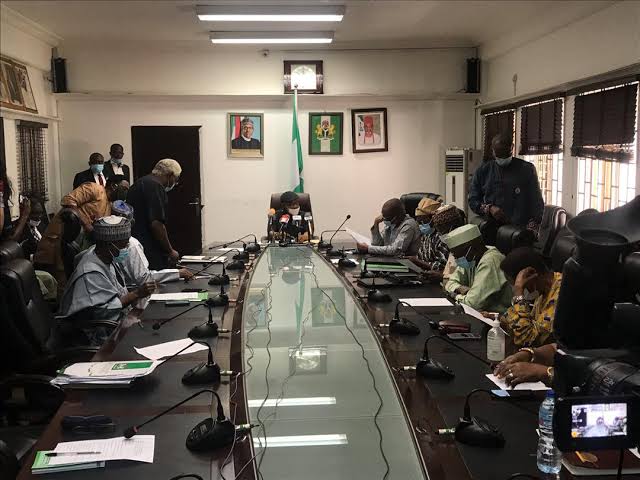Nigerians, including those not directly involved in the management of the educational sector of the nation’s social life, agree that the country is not getting it right. They cite as an example the penchant for parents to send their wards to schools overseas. For them, this is proof that the health of the education sector is suspect and it is about time we pulled the chestnut out of the fire.
For this section of Nigerians, expanding the tertiary institutions’ sub-sector is not the way to go. It is from this standpoint that they urge the National Assembly (NASS) to take a deep breath and reconsider their plan to add more 63 universities, polytechnics, colleges of education and monotechnic institutions into the already polluted mix.
Available record indicates that the country has about 49 federal universities, 59 state-owned universities, 76 private universities, 40 polytechnics, 70 federal and state colleges of health, 17 private colleges of health and 219 colleges of education.
Considering the fact that millions of Nigerian students, each year, miss out on their ambition to acquire the proverbial golden fleece that a certificate from a university or other tertiary institution represents, may stand as a plausible reason for the expansion programme being envisaged by the lawmakers.
However, it is also a fact that physical structures alone cannot make an institution at that level. There are academic and administrative personnel that must be required to run the place to meet the standards that are necessary for them to qualify as tertiary institutions. All these will require adequate funding which presently cannot be guaranteed.
From this newspaper’s understanding, tertiary institutions, especially universities, are expected to operate as international communities attracting students and faculty staff from far and near. That used to be the case in Nigeria until the bubble burst.
It used to be the case also that graduates from Nigerian universities were easily accepted for post-graduate studies abroad. That, too, has since faded as foreign universities require Nigerian graduates aspiring for studies at that level to repeat the process by running their own programmes first.
The reason is not too far to fetch. The Academic Staff Union of Universities (ASUU), the umbrella union for all academic staff in Nigerian universities, are perennially on war path with the governments at state and federal levels during which period they suspend all academic work. The same scenario plays out with other arms of the nation’s tertiary education sector.
The grouse always, on the part of the unions, has to do with the issue of under-funding. While the government worry about corruption in the system that hampers the judicious deployment of scarce resources which also impede the proper development of the institutions as the lecturers and other workers, allegedly, mismanage the little money available that ought to go into putting things right in those places. When such strikes are temporarily suspended to allow for a semblance of academic work, there is often no time to groom the students sufficiently as they should resulting in the mass production of unemployable graduates.
Our argument here is that the nation can ill-afford one more tertiary institution let alone 63. Experts argue that the lawmakers, in bringing about this proposal, are driven by other motives that have nothing to do with the improvement of the education sector. The reason, in our view, is self-serving to create the wrong impression in the minds of the constituents that they attracted dividends of democracy during their tenure. We sympathise with them in this regard even as we insist that there are other projects that can also serve that purpose of trying to live up to the expectations of their constituents.
We are worried that the tertiary education sector is gradually being bastardised with the proliferation of universities, polytechnics and so on that cannot pass for primary schools in more advanced countries. Some of these institutions pay very scant attention to the quality of staff because the nation is not producing enough manpower at the same rate it is giving approval for the establishment of these supposed citadels of learning.
To worsen the situation, foreign inputs into the system is declining due, mainly, to corruption-induced attitude of some academic staff who misuse or even divert their research grants. Also, the economic down turn that has been the fate of the country in recent years, makes academic jobs in Nigeria unattractive to expatriates who, ordinarily, would have been interested. Sadly, in our considered opinion, the locally produced academic staff cannot be said to be capable enough to meet the rigorous standards that are obtainable elsewhere even in Africa. It is on record that no university in Nigeria is among the first 200 in the world. If that is the case, what is the basis for the mad rush to approve more of them and make a caricature of the entire higher education sector in the country?





